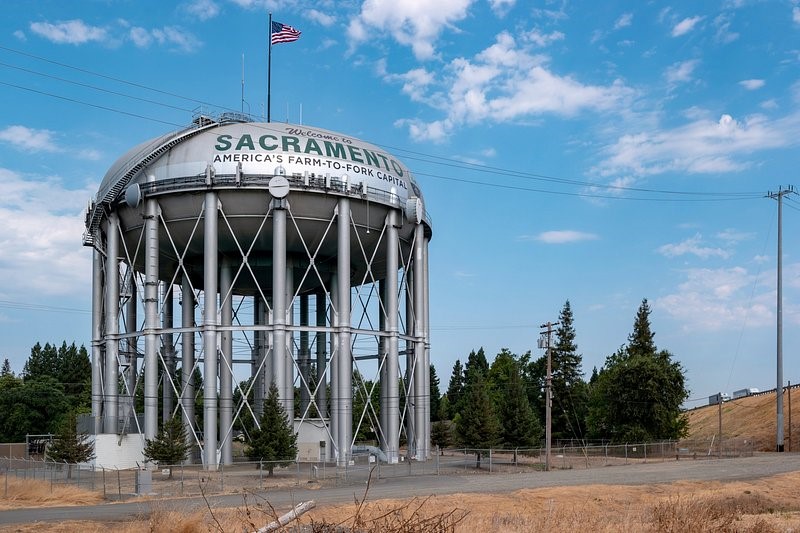
On September 22nd, Governor Newsom signed Assembly Bill 1827 into law. This bill, authored by Assemblymember Diane Papan, continues CCKA’s work of fighting for affordable and equitable water.
When you pay your water bill, you aren’t just paying for the water you use, you are also paying for the infrastructure necessary to extract that water from the environment, purify it, and pump it to your home. This is why most water bills are broken into a variable cost, which changes based on how much water you use, and a fixed cost, which stays the same even if you never turn on your tap. The larger the infrastructure, the higher those fixed costs tend to be for everyone. But, because everyone pays for the same infrastructure, this can lead to some pretty inequitable results.
Take a simple example of a utility’s decision to buy a water tank that serves two properties. Property A has a California native plant landscape and efficiently uses water. Property B maintains a large green grass lawn and uses significantly more water. Instead of buying a small water tank that could serve two efficient people, the utility now must invest in a larger tank to accommodate Property B’s water needs. Even though the variable portion of their water bills may differ, an inequitable water rate will force both Properties to equally share the fixed cost of that larger tank.
Overshadowing all this in California is Proposition 218, a Constitutional Amendment which mandates that the costs you pay for water must be “directly proportional” to the cost of serving you that water. On its face, this seems to act as a shield against inequitable water rates, but many have used Prop 218 as a sword to prevent water suppliers from adopting equitable rate structures, claiming that water suppliers need advanced monitoring systems and specific data to properly justify more equitable rates (data that is apparently not necessary to justify an inequitable rate structure). And, recent court decisions have found these arguments compelling, making it extraordinarily difficult for water suppliers to justify rate structures that take into account the fact that higher-use customers are responsible for a proportionally higher systemwide cost. Water utilities now face significant legal threats if they try to design equitable rate structures, leading many to simply maintain the status quo.
In response, CCKA, alongside Irvine Ranch Water District, co-sponsored Assembly Bill 1827, which recognizes that water suppliers can use reasonable and well-accepted methods of assessing the additional costs that high-water users place on the system to justify their rate structures.
Last year, we sponsored Assembly Bill 755 (Papan), requires water suppliers to take a hard look at how the highest water users in their system drive water costs for everyone. Now, Assembly Bill 1827 allows water suppliers to turn that data more easily into an equitable rate structure.
Stay informed of our policy work and our efforts to protect California’s waters by subscribing to California Coastkeeper Alliance’s monthly newsletter, becoming a lifetime member, or following us on social media: @CA_Waterkeepers.
Staff Attorney Cody Phillips advocates for statewide policies that protect water quality and access to clean water throughout California.



